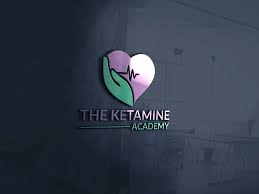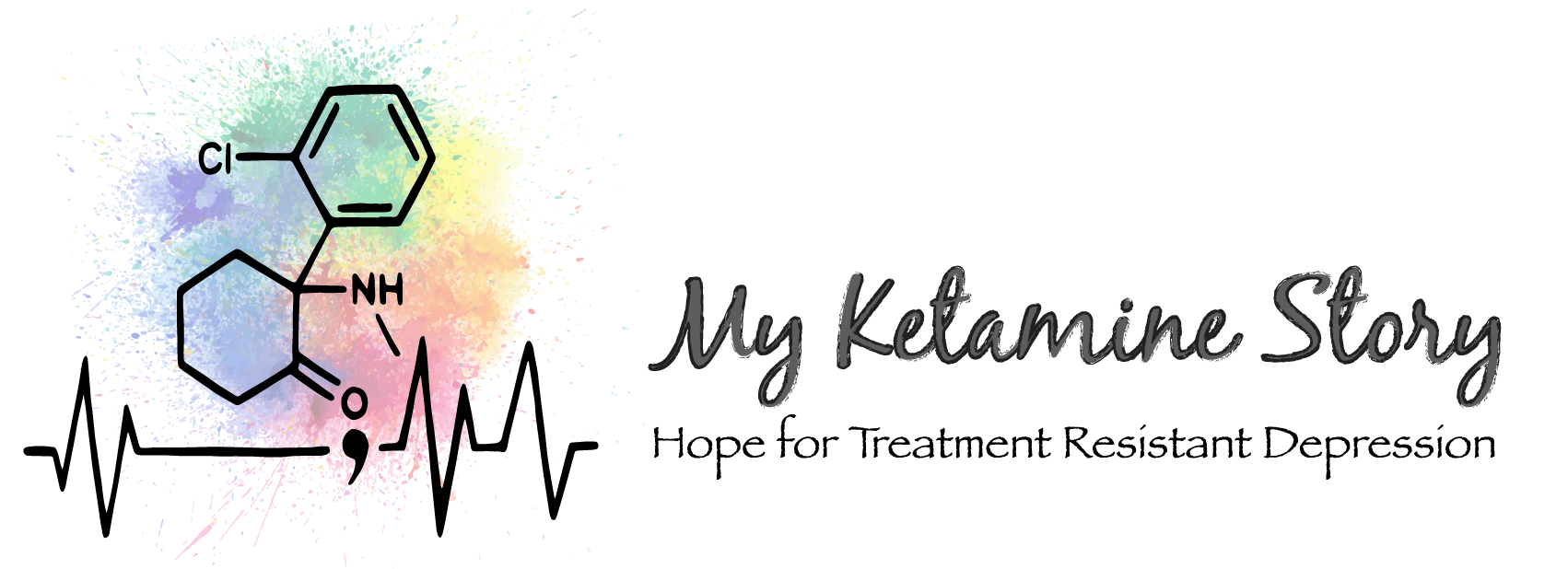Why We Should Be Talking About Ketamine And The Need For More Providers
Hello again. It is Susan from myketaminestory.com.
I am a blogger that suffers with Treatment Resistant Depression (TRD), Anxiety, and Obsessive Compulsive Disorder (OCD). I was introduced to Ketamine for TRD in January 2015. I am forever grateful that I was. I spent the first two years focused on my recovery. I now have an excellent treatment plan in place, but that does not clear me from obstacles or pitfalls. I journal regularly. I educate and advocate for Ketamine Therapy to help treat chronic depression.
I have written for several Ketamine websites, entirely based on my experience with Ketamine therapy over the past 4.5 plus years in treatment. As I welcome in a new year, I find that after several years of receiving Ketamine therapy for my major depressive disorder there are still many people unaware of the uses for Ketamine and how life changing it can be for those, like me, suffering with debilitating depression; depression so profound that engaging in daily living was nonexistent. Before I was introduced to Ketamine in early 2015, I never left my home and life was hopeless. It took all my energy and mental stamina just to fight the demons and suicidal thinking. It was exhausting, and I was completely done with trying. After decades of multiple failed treatments, hospitalizations, and suicide attempts I was out of hope; until my therapist and husband both discovered clinical studies on Ketamine for treatment resistant depression. In March of 2015, I would begin my journey to recovery and fulfillment.
In this blog, I want to discuss why there is such an immense need for more discussions on Ketamine and the immense need for more Ketamine providers. I feel there is a profound need for more professionals to offer this life saving treatment to those of us suffering with biochemical imbalances in our brains. I have been fortunate to be aided so dramatically by this old anesthetic. I couldn’t be happier to discuss how Ketamine is continuing to make a difference in my mental health and prospects for a lasting future. It deeply saddens me each and every time I check my email and discover a correspondence from fellow sufferers looking for a Ketamine clinic in their area. There are not nearly enough providers willing to educate themselves on Ketamine in order to administer this quick-acting antidepressant to those of us that have been repeatedly unresponsive to the more traditional forms of medicines for battling our illnesses.
I am very passionate about Ketamine. It has made my world colorful and worth living. It has minimized my depressive symptoms and made it possible to be a functioning part of society. I believe that this drug could radically change incalculable numbers of people plagued with resistant depression and several other types of psychological illnesses, such as post traumatic stress disorder and anxiety. It could potentially help with addiction disorders – this is being investigated and the results are positive. It would be extremely beneficial in emergency rooms to quickly treat suicidal ideation. These are huge outcomes for a drug that was once only used in veterinary offices or during surgeries.
Those of us afflicted with treat resistant depression have had to battle months, oftentimes years, with the demons of depression; all the while anxiously waiting for new medications or adjustments to the cocktail of medications we were on to take hold of our minds and begin to show signs that it was benefiting us. Only to discover that these changes have once again failed us; that after constantly fighting and trudging forward to keep our sanity, and not act out in desperation, these modifications in our medications have rendered us no aid. In fact, it has set us back in time. It has only left us with numerous side effects and a lack of the will to live; at least that was my constant experience over the decades.
Once again, we try yet another advised remedy, or worse we undergo another round of Electroconvulsive therapy (ECT) in the hopes of finding relief. That is not including the countless and horrendous side effects we encounter by being the guinea pig during these trials and errors. The results are always the same – nil – and we slowly and painfully lose the mediocre amount of hope we have remaining.
Ketamine can and has offered hope to many of us burdened with treatment resistant depression. We scrimp and save for the cost of the therapy and travel distances to obtain our Ketamine infusions or intramuscular Ketamine shots so we can reclaim our lives; the one stolen by this debilitating mental illness. Ketamine is proving to be a life raft to those of us out at sea drowning, weighed down by the chaos depression plagues us with. We were out of options until fortunately we discovered Ketamine therapy.
The problem is that not all of those subjected to mental illnesses, like chronic depression, know about the uses of professionally administered Ketamine. If awareness of the ground breaking treatment is known, many can not locate a clinic or doctor willing or knowledgable about Ketamine to begin therapy.
There is a massive need for more professionals willing to educate themselves and extend the service of Ketamine therapy to those of us that may end our stories due to the inability to obtain relief from our horrific symptoms. Many of us have yet to uncover the advantages Ketamine has to bestow upon us.
We need help.
Many of us are responding positively to the drug: Ketamine.
I am one of those patients that can attest to the grand differences that Ketamine has extended to me. I am one of the more auspicious cases. I have the opportunity to inform others like me that there is hope. It is not an easy undertaking. I know what having no desire to keep fighting and searching for relief looks and feels like. I want to extend an enormous net into the ocean of sorrow and pull up those struggling for a breath and for life. I want to offer light on the waves that threaten to crush them. I am determined to help. I know how deep and cruel those waters are. There is a reprieve; a safety boat. It may be overturned and difficult to see through the tears and anguish, but it is floating nearby. Do not give up. Depression is paralyzing. I know. I know all too well what havoc it can create and just how utterly exhausting it is to fight against the sea monsters tugging at your soul begging for you to succumb to the voices in your head pleading for it all to end. I know. I was lost in that abyss, too.
I have a voice. I am using it in the fashion I feel most comfortable. I am using my words to reach out to those still floundering in the tides. I speak and I pray you hear me. I pray you find me. I am carrying loads of flashlights in my raft in order to to shine the light on what Ketamine may be able to accomplish for you that other treatments fail to do. I am sharing my insidious journey in an attempt to pacify your fears and possibly, maybe, potentially pull you to safety; so you may one day stand strong on the sandy beach and view the beauty of the sun setting over the same waters that insist on claiming you.
Ketamine has given me back the ability to swim, to float, to dive back into life with a desire that I once only read about in well crafted storybooks. Life. It has given me an appreciation of a full breath. It has rewarded me with countless inhales and exhales free from the terrors and trauma that accompany mental illnesses. I can breathe without the panic and trepidation of swallowing gallons of saltwater; that same vast ocean that once taunted and eluded me for decades has little power over me now. I, may at times, feel tiresome, achy and my muscles and mind want to rest, but I am swimming.
However, Ketamine is not a very accessible drug for us. There are not nearly enough Ketamine providers. There are still a vast number of people in the medical field that know nothing of the wonders Ketamine is providing for people like me and you. If they are aware, they often don’t have the means or ability to offer Ketamine therapy. Ketamine needs to be administered in an office setting by trained staff and requires extra time in appointments. I do realize that not every professional available to treat patients with Ketamine knows where to begin, want to take the time to educate themselves, inform their patients on Ketamine therapy, or how to add Ketamine to their treatments plans. I plead with them to make the time. Ketamine is a lifeline that countless patients can thrive from if given the opportunity.
There are more and more articles being written about the effectiveness of Ketamine in treating resistant depression, as well as other mental illnesses – and not excluding a continuing problem with those serving in the military that return to their families with Post Traumatic Stress Disorders. This is incredible news for those of us that have been waging a war with our minds for years or decades.
It is not enough.
There is also an online Ketamine training course, through the Ketamine Academy to help potentially interested parties learn what they need to know to become Ketamine providers. The groundwork is there.
Yet more is needed.
Talking about Ketamine and becoming a Ketamine provider is crucial. The reasons are abundant. I want to open the dialogue.
When I first discovered that clinical trials were being conducted with Ketamine for treatment resistant depression, I was at the end of my rope. I had tried practically every drug on the market for treating chronic suicidal depression. I was even given drugs that showed possibilities for aiding depressive symptoms, but medications used to treat other ailments. I never responded favorably to any of them. I had even resorted to and underwent ECT treatments to no avail. I was out of options and lost all faith in ever finding relief from my disease.
I was done.
I was finished.
I said my goodbyes.
I left my do not resuscitate note on the counter.
I tried one last time to end my life.
I almost succeeded.
My higher power had different plans for me, and I was not at all thrilled with the plan when I awoke after that last suicide attempt. Little did I know that help was right around the corner for me.
My husband and therapist, at the time, both found the same short article on Ketamine and the prospects of this drug having positive outcomes for those suffering with chronic depression and a long history of failed treatments. The key words, treatment resistant depression, sparked interest for them as they read what was highlighted in the two or three paragraphs written about the clinical trials taking place with Ketamine and the positive response they were finding in those afflicted with resistant depression.
That was back in late 2014 and the beginning of January 2015.
It would take months for me to recover, save money, and locate a Ketamine provider in my area. It was unheard of and my psychiatrist, at the time, actually considered it to be a new age and questionable approach to treating depression, and one, in his opinion, not be trusted. I imagine that he is not alone in his beliefs. That is an utter shame. Instead, his recommendation for me was literally experimental brain surgery. In all honesty, death looked like a more viable option for me. I was against the idea of risky procedures that included a scalpel and my brain. I was not interested in his suggestion.
I would end up traveling six hours to New Jersey and starting treatments at a clinic offering Ketamine infusions. It would only be the beginning of my journey, but it was a beginning versus an ending.
I am living today because of the help of Ketamine. I am certain of this fact.
I have written of my journey on my website, as well as other Ketamine clinic websites advocating for the use of Ketamine for those suffering from treatment resistant depression. It has been years now, and I continue to want to educate and offer hope.
It has been over four and a half years since my first Ketamine infusion, and I now receive emails from people world wide trying to locate providers in their area. The issue, the negative – from my point of view, is that the more Ketamine is talked and written about, the plethora of people obviously wanting to know more about this treatment for depression so that they too may find relief are running into a lack of professionals administering Ketamine or knowledgable on the drug. I have read numerous emails asking me for assistance in helping them find clinics in their area. I want to help them all. I was in their shoes, and it only intensifies my desire to write and advocate for Ketamine, as well as imploring more professionals to research their options. There are websites like the Ketamine Academy offering assistance with a well constructed online training course, making it accessible and manageable to become a qualified Ketamine provider. The Ketamine Academy is affordable and educational. I highly recommend and believe in the program. I was excited to hear about an online training course helping qualified individuals become Ketamine providers. I even agreed to be interviewed for the website. I want to help in any way I can to spread the word about the success Ketamine may offer to those averse to traditional methods for treating clinical depression.
In the beginning of my advocating for Ketamine, it was patients in the United States seeking my help in locating Ketamine providers in their state, but over the last year or so those in Europe requesting information has increased. They are reaching out to me in order to discover if Ketamine is a viable option for them and where they can obtain it in their area. The colossal problem is the lack of professionals offering Ketamine for depression worldwide. It always saddens me to send replies back to suffering individuals saying that the closest Ketamine facility is hours away from their home, or worse, that it is not yet available in their state or country.
I have been fortunate to find a doctor willing to work with me. I am grateful. I truly am. However, even for me it is problematic.
As I sit here writing this article in the comfort of my home, there are hurdles. My doctor’s office is an hour away. It is no metaphor that I have to travel through the mountains to get to him. There are actual mountains on my trip to see my doctor. My doctor’s office is 66 miles away but he feels like thousands of miles when he is on vacation. My depressive symptoms are lurking and I am using my cognitive behavior skills to calm my nerves. Even after four plus years I am no fan of the times when my depressive symptoms filter my mind and world. It may seem like I am complaining and I suppose on some level I am, but I am still among the lucky ones that have a Ketamine provider available to treat me.
All week long I have been apprehensive about my anxiety of having my doctor away and thinking what ifs. I had to extend my typical appointment span with him and feared that I would be in need of my Ketamine therapy before his return. I have been using my tools and managing my life better than in the past, there is no denying that. Nevertheless, I know that a delay in my treatment could mean unnecessary backslides for me. I work very hard to keep my symptoms at bay as they can take me down the rabbit hole in days. I can’t afford to be out of commision. I am a natural worrier. I practice staying mindful and in the day; not predicting my doom. It helps.
I am blessed and privileged to have a Ketamine provider and remind myself of this when I write about those not so fortunate to have a Ketamine provider working with them.
I know that my setbacks are reminders of why we should be talking about Ketamine and the need for more Ketamine providers. When there is a break in my routine maintenance of Ketamine I know there is a risk of my symptoms returning and what that would mean for me; my inability to function the way I am now accustomed to living.
The treatments are not cheap, and the risk of losing time due to the return of my depressive symptoms makes life grueling for me. I lose so much. I struggle with perspective. My world is darker and small obstacles seem monumental to me once the depression presents itself. My tool box that is usually overflowing with mindfulness techniques and cognitive behavior strategies empties. The tools are there. I just can’t see them. I can’t remember what to do.
I am in a state of confusion.
I am that lost and scared little girl wandering back and forth looking for her lost soul. It is buried. I fight to gain the clarity I now know exists for me, but it gets hazy and out of focus. I get fueled with hurt and resentments that I can’t shake or let go of. My thoughts race. I feel like I am losing my footing.
I wish that more doctors or nurse practitioners would be willing to administer Ketamine to me and to the copious others that have not found a Ketamine provider in their area. I get internally angry that I can’t just go in to see my local primary care person and have them administer my Ketamine shot to me. I know I am not alone in the desire to have qualified people willing and able to administer Ketamine.
I rage on in my mind. I cry out for myself and for the many others continuing the search for help.
During the trying times, I talk to others willing to listen to me. I try to educate and inform practitioners whenever I have the opportunity on the benefits of Ketamine. I want them to be open to learning more and possibly be willing and able to administer my Ketamine injection in an emergency. However, unfortunately, it is not an uncomplicated issue and many are unwilling to commit to being available to me in an emergency, or for long term care for that matter. It is frustrating. I have been getting intramuscular Ketamine injections for years and still I run into conflicts.
It is not that cut and dried.
I am aware of that. I am.
Being a Ketamine advocate has its rewards, but it is not a trouble-free discussion to have with others. It is difficult to explain to the common person and often times even more challenging to tackle professionals on the subject of Ketamine. I literally have had to explain that Ketamine isn’t a pill I can take. It has to be given to me through an injection or infusion. I attempt to explain why.
Yes, I want to scream at times.
I want to pound my fists and stomp my feet.
Listen to me.
I have been getting this treatment for almost five years now. I am not a novice. I could give it to myself. I should be able to give it to myself. It is no different than a diabetic giving themselves an insulin shot. I know there is more to it than the simplicity I am writing about now, but still I feel that there has to be a better solution.
I feel outraged.
I understand logically why Ketamine is still controversial, but my emotional mind doesn’t care. I know more about the world I will be plunged into if I don’t get treatments. It is not a place I want to visit.
I don’t want anyone to be in that kind of darkness.
Discussions and actions are needed.
When caring individuals in my life don’t understand my predicament and I am unable to explain the quandary I am in, I feel I am doing an injustice to Ketamine, and to others that could be aided by it. I start to get frustrated explaining to others why Ketamine is not available from just any doctor or practitioner. It is not an easy task. Even as Ketamine is being written and talked about more frequently, there are a throng of professionals clueless about Ketamine and the benefits for patients with treatment resistant depression. I won’t give up. This topic is too important.
I also know realistically that it is not as easy as just giving me the shot. I do. I absolutely understand the red tape. Unfortunately, the FDA is involved and not supportive. Ketamine is classified as a dissociative anesthetic. It is an old drug and there is no money in using Ketamine, as is, to treat depression. Instead they have big pharma creating a synthetic version of the drug so they may profit. It is all about the dollar, and they are not interested in what a Ketamine-like drug will cause in terms of side effects. They will surely discover a drug to counter those effects later. I know I sound jaded in my thinking. However, my experience with Ketamine is that there are no long lasting side effects. The drug is out of my system in less than an hour, yet the antidepressant properties of the drug and its benefits to my mental health continue for weeks. That is not important, apparently. It doesn’t seem to matter that this “old” drug is helping many patients when no other drug or treatment has and could potentially aid thousands if not more depressive sufferers just the way it is.
I digress. Okay, rant over.
I lied, I will also briefly add, as I don’t want to stray off topic too far, that I have not even touched on the subject of how many insurance companies refuse to cover Ketamine therapy. It is ridiculous. It really is. Now, I promise I will end my tirade by simply stating that education is extremely important, needed and required.
I will keep writing and informing any professional willing to give me the time. I think it is one reason I am writing for the Ketamine Academy. It is an online training course designed to assist others in the ins and outs of becoming a Ketamine provider. I know first hand how imperative it is to have more people able and available to administer Ketamine, in a safe environment, in order to reach more sufferers with treatment resistant depression. I won’t even go into how it could also bring down the costs of the therapy and include even more patients that are in need. I will save that for another blog.
I know that winter is only just beginning and issues with the weather and travel will be a theme for me until Spring. I can’t express enough how if only there were more providers of Ketamine therapy this would not be an issue for me or others. More importantly, Ketamine could reach more individuals wanting to try this new antidepressant and can’t because it is not affordable or offered in their area. The depressive people this drug could help is limitless, in my opinion.
I hope you will join me in learning more about Ketamine, by reading my blog posts and sharing with friends and family. I will be posting regularly on The Ketamine Academy website, as well as on my personal website at MyKetamineStory.com. I know what a miraculous drug Ketamine is. I am absolutely confident that I have lived 4.5 plus years (and counting) longer than I would have if my husband had never discovered an article in 2015, about using Ketamine for treatment resistant depression. I continue to heal and grow with the help of Ketamine.
We all need a platform to stand on and be heard. I truly believe Ketamine is a worthy topic. I sincerely want to inform as many people as I can. It is possible that we may all know someone suffering from Treatment Resistant Depression (TRD) or Post-Traumatic Stress Disorder (PTSD). I believe they might benefit from Ketamine Infusions or injections. I know that I definitely have, and continue to have, amazing success with Ketamine therapy. I know how frantic I have felt when I had no hope, no light guiding my way. If one person reads this blog and can help themselves or someone they love out of darkness, it is worth the time I put into my writing. I know from experience how life-altering Ketamine can be.
I pray that others suffering with profound depression will somehow find their way to my website so I can introduce them to the possibilities of Ketamine. I ask a power greater than myself to bring as many practitioners, fighting for their patients and wanting to participate in positive change, to read my words of hope.
Until next time, feel free to comment or shoot me an email. Better yet, if you are a healthcare provider, why not sign up for the Ketamine training course today through The Ketamine Academy. Be a force of positive change. Be an option. Be a place for those suffering with Treatment Resistant Depression or Post Traumatic Stress Disorder to turn when all other avenues have been exhausted.
Ketamine is hope.
If you are interested in educating yourself further on Ketamine therapy for Treatment Resistant Depression, check out the four-part series I wrote answering questions about Ketamine use, based on my experience with Ketamine therapy over the past years:
My first blog, Ketamine: Addressing Questions & Concerns focused on my early experience with Ketamine Infusions.
In part two of the series, Addressing Questions & Concerns About Ketamine Therapy for Treatment Resistant Depression I addressed questions and concerns about Intramuscular Ketamine vs Ketamine Infusion therapy.
In my third blog, Frequently Asked Questions: Redefining Depression With The Assistance Of Ketamine Therapy, I was a bit more random. I had emails with several questions and themes, and I addressed as many inquiries as I could.
In my final question and answer dialogue, Pondering Concerns & Questions: The Benefits Of Ketamine For Treatment Resistant Depression, I discussed research, clinical studies, and the need for changes to occur within our insurance companies and federal government so that maybe one day Ketamine will not be so difficult to afford or obtain from any qualified professional.
I hope these personal blogs from a patient that suffered for over four decades with treatment resistant depression will be helpful in convincing you why Ketamine needs to be discussed and how it could help you or someone you love.
Originally Post On The Ketamine Academy





